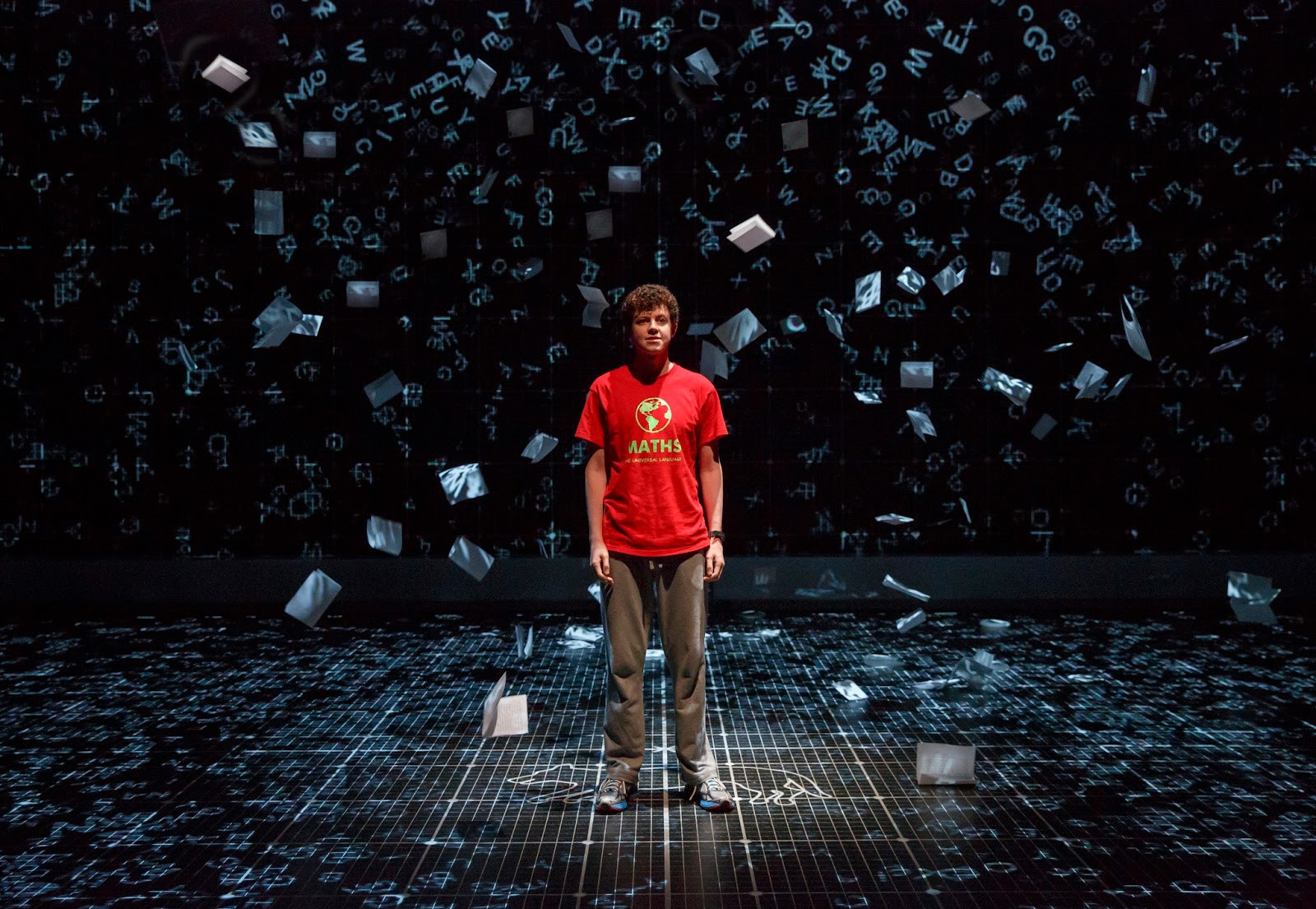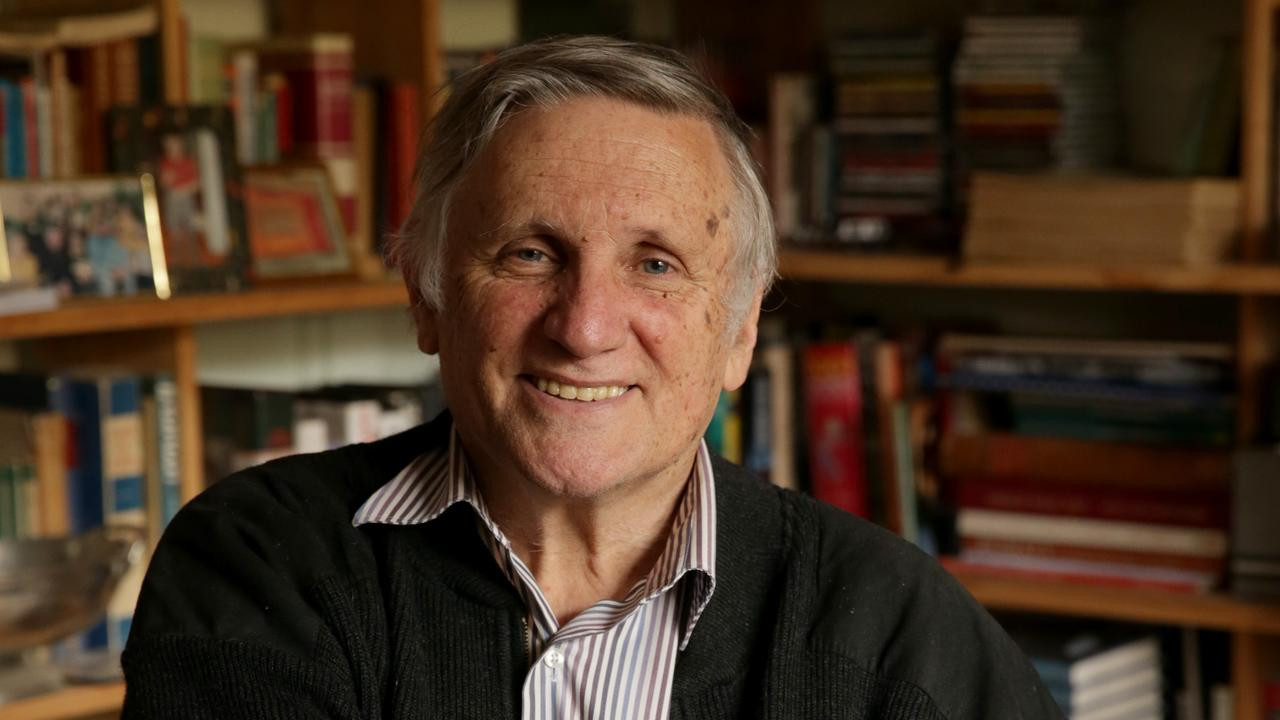The play has barely begun but onstage at Belvoir’s new production of The Curious Incident of the Dog in the Night-Time a countdown clock is already, steadily, ticking down to something explosive. Christopher, an autistic teenager, is about to be thrown into the deep end of a murder mystery (involving his neighbour’s dog). Emotions are running high and a confrontation is brewing. Rather than increase the tension, however, the clock cuts through it: we have five seconds to steel for something loud. When it comes we’re prepared, and able to take care of ourselves.
Mark Haddon’s bestselling 2003 novel has been adapted for the stage a number of times but this warning system is unique to the show now in Sydney – and it’s thoroughly explained by the performers before the show begins. There are also “timetables” provided in the foyer that allow audiences to safely navigate the plot twists and big sensory moments embedded in the work, and a quiet space in the theatre’s green room for audience members who may need it.
It’s all part of what the director, Hannah Goodwin, describes as a “neurodivergent-affirming dramaturgy” designed to make the play more accessible. “[I wanted to] make a show that Christopher himself would enjoy and be able to access,” she says.
That hasn’t always been the priority: the critically acclaimed 2012 production by London’s National Theatre, which previously toured Australia, relied on dramatic lighting, video projection and sound cues to demonstrate Christopher’s experience of sensory overload, making it challenging for neurodivergent audiences – and potentially prohibitive for autistic performers.
Goodwin worked closely with Nixon and neurodivergent members of her creative team to design a show that was as accessible for those on stage as those off it. She also drew on the expertise of Western Australia’s award-winning theatre company Sensorium, which makes shows for young audiences with disability, and the Drizzle Boy director, Daniel Evans.
Nixon says he is particularly proud of the production’s countdown system, which he feels mirrors the warning system in Christopher’s brain. He hopes it will help audiences understand “what it actually feels like when somebody is [approaching] sensory overload, or potentially experiencing a panic attack or something like that, where it really does feel like a ticking timebomb is going off”.
Haddon’s book had a profound emotional effect on Nixon. “I had never really read a story before that I’d connected so deeply with,” he says.
At the time it was published, and even a decade later when the UK playwright Simon Stephens’ stage adaptation premiered at National Theatre, mainstream representations of autistic protagonists were rare.
Since then, however, the book and play have been criticised for problematising autism, promoting simplistic stereotypes and being uncritical in their depiction of other characters’ abusive treatment of Christopher. (Haddon himself has stated that he knew very little about autism and did “no research” before writing his novel.)
“I know that the book and the play has been a little divisive within the community; I don’t think that it speaks to everyone,” Nixon says. “I was able to look past some of those potential moments and just celebrate that I could see a character like myself.”
Goodwin, meanwhile, has grappled with the “fraught” source material by restoring the play to its original setting in the late 90s, to better contextualise its depiction of autism, and to acknowledge that Christopher’s experience in the world would be different now, with more evolved support systems, understandings and technology in place.
“We definitely, as a team of artists, have had a gently antagonistic relationship with some of the content,” she says. “And I hope that this has opened up the play, and the conversation around the aspects of the autistic experience that this play does try to represent accurately, a little bit more than what a production built even five years ago would have been able to do.”
The Curious Incident's Legacy
The Curious Incident of the Dog in the Night-Time has become a landmark work in contemporary literature, and its enduring popularity is a testament to the power of Haddon’s storytelling. However, The play’s depiction of autism has been subject to much debate, with some critics arguing that it perpetuates harmful stereotypes. This debate is likely to continue, as the play continues to be staged and discussed. But one thing is for sure: this new production of The Curious Incident of the Dog in the Night-Time is a must-see for anyone interested in theatre, autism, or simply a powerful and moving story.
A Conversation About Autism in the Theatre
The Curious Incident of the Dog in the Night-Time is not the first play to feature an autistic character, and it will not be the last. However, the play’s success has sparked a much-needed conversation about the representation of autism in the theatre. With more and more autistic actors and playwrights emerging, it is clear that the theatre is beginning to embrace the diversity of the human experience, and the autistic community is a vital part of that. As we see more and more autistic characters portrayed on stage, it is essential that we continue to engage in a thoughtful and respectful dialogue about how best to represent the autistic experience, ensuring that such representations are authentic, nuanced, and sensitive to the diverse experiences of autistic individuals. The theatre has the potential to be a powerful tool for promoting understanding and empathy, and it is essential that we use that power responsibly.
What's Next for The Curious Incident
The Curious Incident of the Dog in the Night-Time has already had a profound impact on the theatre world, and its legacy is sure to continue to grow. With this new production, the play is poised to reach a wider audience than ever before, and the conversations it sparks about autism will undoubtedly continue to be relevant and important for years to come. The play has also inspired a number of other works, including a film adaptation and a musical, demonstrating the enduring appeal of Haddon’s story. It is likely that we will continue to see new interpretations of The Curious Incident of the Dog in the Night-Time for many years to come, ensuring that the play remains a vital part of the theatrical landscape.
The Curious Incident of the Dog in the Night-Time is at Belvoir St Theatre, Sydney, until 22 September


















